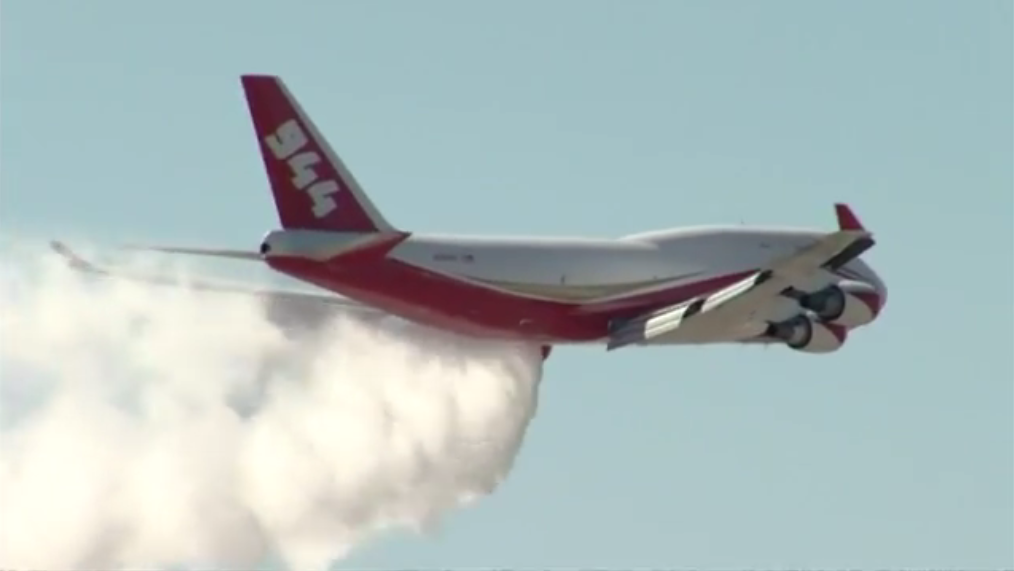Thanks to your feedback, we've dug for more information about the Global SuperTanker. That's the biggest and fastest firefighting plane that lives in Colorado Springs but can't fight fires in Colorado or anywhere else in the U.S.
The reason, as Next first told you on Thursday, is because the U.S. Forest Service has not signed off on the tank system that was installed on the converted 747. The Forest Service needs to verify that the 20,000-gallon water of retardant drops are effective and do what they're supposed to do.
The plane was used last year in Israel and earlier this year in Chile because those countries contracted with the private company that owns the plane. Oh yeah, Colorado doesn't own the plane, Global SuperTanker Services, LLC does.
The only way it can fight fires in Colorado is if a city, county or the state contracts with the company. So far, only Douglas County has signed a deal for when the SuperTanker can fight fires in the United States.
"We have a contract with them because, quite frankly, they're a valuable resource that is literally 20 minutes away in our backyard," said Douglas County Emergency Management Director Tim Johnson.
Douglas County has set aside $200,000 to pay for the SuperTanker if it needs to request its services. The contract also reveals how much the plane costs per hour. Douglas County would pay $23,500 per hour if it ever needs the plane.
If Douglas County ever wanted to reserve the plane exclusively, it would pay $40,900 for a 12-hour day, on top of the $23,900 hourly rate.
FYI: the cost of Air Force One is $180,000 per hour.
"What's the worth of property and human lives? Yeah, it's expensive, there's no question. It's more than a standard large tanker," Johnson said.
The standard large tanker is the kind you're used to seeing in the Colorado skies. The kind with red tails and red retardant dropping from its fuselage.
Douglas County used that kind last year in the Chatridge Fire that got close to homes south of Highlands Ranch. It did not damage any homes and was put out in five hours. That tanker cost the county $7,000 per hour.
"A supertanker would, obviously, be used during a catastrophic event. It would definitely be a situation when we have exhausted other resources, other assets, and we know that property and lives are at risk," said Johnson.
Douglas County also has a contract with the second largest air tanker, which is based in Albuquerque. The county set aside $100,000 for the DC-10 which can hold about 12,000 gallons. It holds less, lives a little farther away, but costs more. If the county were to call on that plane, it would cost $25,500 per hour, with a minimum of two hours.


